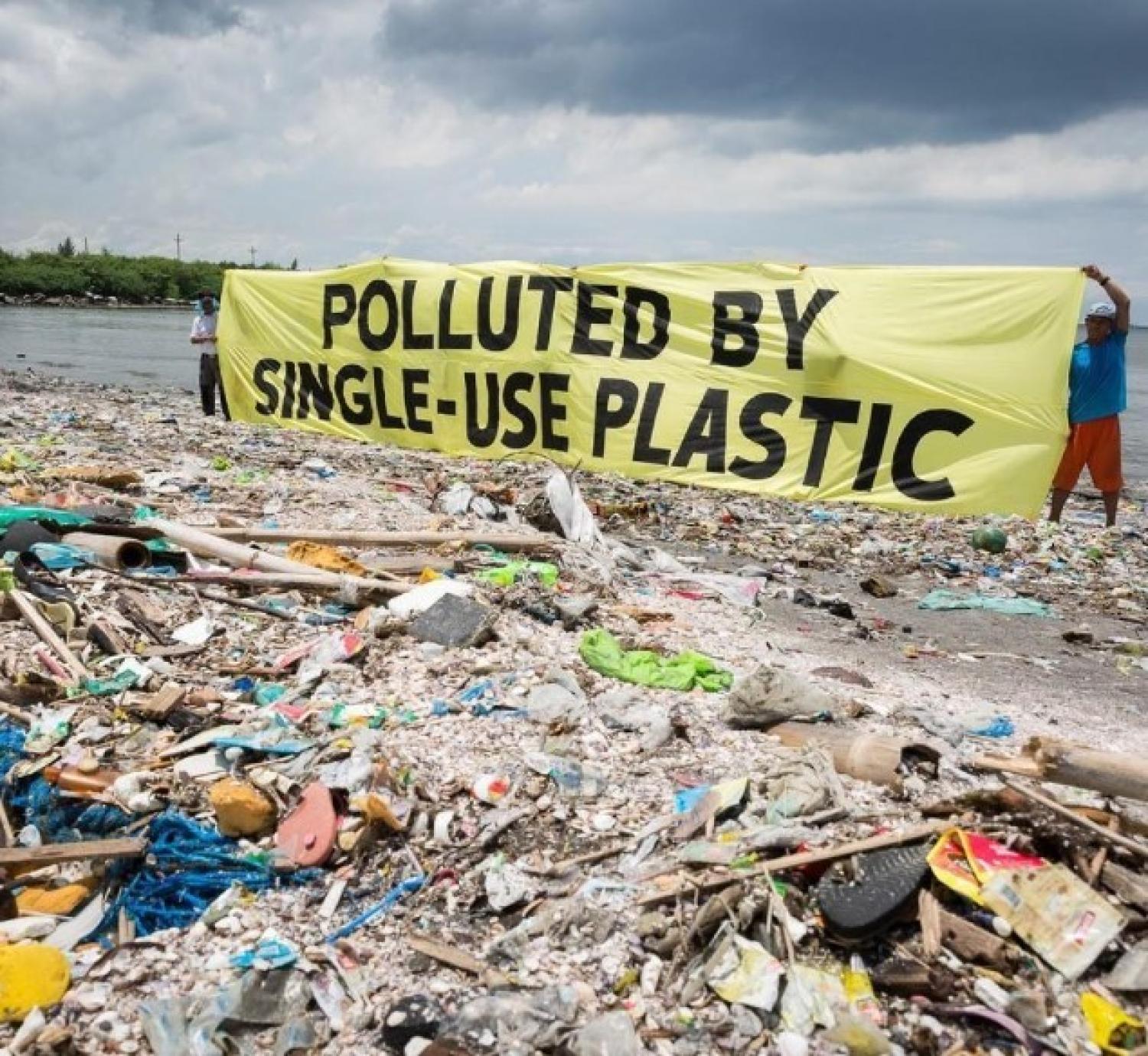The impact of plastic on climate change

It takes more than 1,000 years for plastic to decompose. Every plastic bottle, straw and container ever thrown away is still intact and somewhere on earth. The plastic problem affects every part of the planet, from the top of Mount Everest to the bottom of the Marianas Trench.
What is single-use plastic?
Single-use plastics are types of plastic designed for one-time use with the expectation that the user will throw them away. These plastics prioritize convenience over durability and repeated use, making them a prime culprit behind our throw-away society.
Worldwide, more than 300 million tons of plastic is produced every year, and half of this is single-use plastics. Single-use plastic includes water and soda bottles, plastic grocery bags, product packaging, straws, coffee cups and single-use plastic baggies.
What is plastic made of?
Plastic is derived from fossil fuels, including natural gas and crude oil, and also contains chemicals that are known endocrine disruptors and threaten human health. Plastic does not decompose. Instead, it breaks up into smaller pieces called microplastics. These microplastics are practically everywhere on earth and pose a deadly problem for wildlife. If too much microplastic accumulates in an animal, it can cause punctured organs or intestinal blockages. Human exposure to plastics with these chemicals may cause hormonal imbalances, reproductive problems and even cancer.
How single-use plastic production contributes to climate change
Because single-use plastic is produced from fossil fuels, extracting and creating these plastics emits vast amounts of greenhouse gases.
- It is estimated that just the extraction of these fossil fuels and their transportation to plastic factories emits 1.5 to 12.5 million metric tons of greenhouse gases.
- Removing forested land for oil extraction and pipeline construction has also released more than 1.6 billion metric tons of carbon dioxide into the atmosphere. This land clearing also limits the amount of carbon dioxide removed from the atmosphere.
- The refinement of plastics emits an additional 184 to 213 million metric tons of greenhouse gases each year.
- Landfills, where single-use plastics are sent, account for more than 15% of methane emissions. The disposal of more plastics in landfills leads to increases in landfill size and these emissions.
- There is an enormous floating mass of plastic in the Pacific Ocean, twice the size of Texas, that continues to grow.
- Plastic pollution affects the most vulnerable communities first. Developed countries, such as the United States, send plastic to developing countries for processing. Eventually, the amount of plastic can become so overwhelming that these communities run out of ways to dispose of it and become covered in plastic trash.
Easy ways to help reduce plastic use
The best way to reduce the impact of single-use plastics on climate change is to stop using this type of plastic. This task can seem quite tricky in a world full of plastic packaging. However, even small changes can have a significant impact. Here are some things to do to limit your single-use plastic waste.
- Use a reusable water bottle.
- Bring a reusable bag to the store.
- Avoid overly packaged items at the grocery store, such as pre-cut fruits and vegetables.
- Grocery shop at a bulk foods store.
- Repurpose old bottles or containers.
- Cook at home instead of ordering takeout, which often includes extra plastic packaging.
- Get a travel cutlery set.
- Use bar soaps and shampoos instead of liquids in plastic bottles.
Make a larger impact
- Participate in a local cleanup day or pick up trash when walking, running or hiking.
- Support legislation that reduces plastic use.
- Buy products from companies committed to reducing plastic use.
- Support organizations addressing plastic pollution.
- Download the AWorld app to track your sustainable actions.


